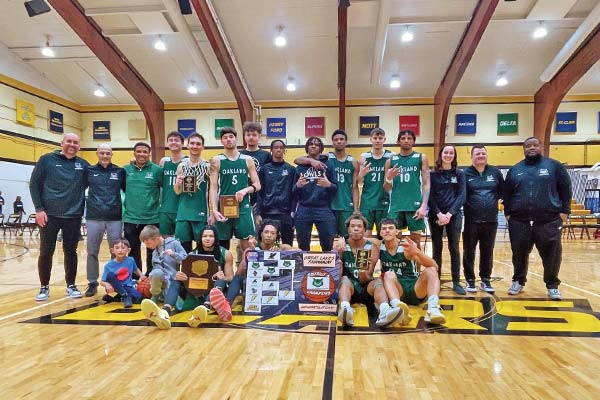Community Newsletter | Summer 2025 Issue
Chancellor's Message
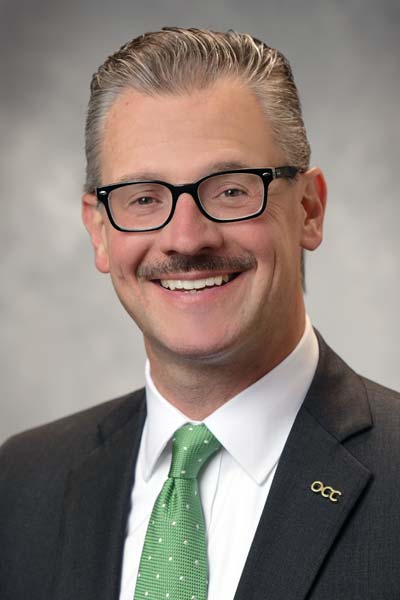
Peter Provenzano Jr.
When Oakland Community College opened in 1965, much of Oakland County was still rural. As the County developed into an economic engine for the State of Michigan, OCC also evolved to become the area’s primary workforce solution.
This inaugural issue of the OCC Community Newsletter looks at our 60-year history and how we’re continually adapting to meet education and employment trends.
One example is our state-of-the-art Culinary Studies Institute Building, which will open this fall on our Royal Oak Campus. We’re excited to offer the community a robust culinary arts curriculum along with a fine dining experience prepared by our amazing student chefs.
We’re also highlighting our successful Dual Enrollment Program. High school students find OCC a great place to jump-start their college degrees—and their careers.
These stories demonstrate how OCC has forged strong community ties over the years. We hope you’ll enjoy reading and learning about us—and discover more great things about OCC in future issues.
Peter Provenzano Jr.
Our Legacy Lights the Way Forward
OCC celebrates its 60th anniversary
When George and Doris Mosher held the first Oakland Community College Board meeting in their Birmingham living room in 1965, could they have imagined that OCC would be among America’s foremost community colleges 60 years later?
That was the goal—although the fledgling institution’s future was far from certain.
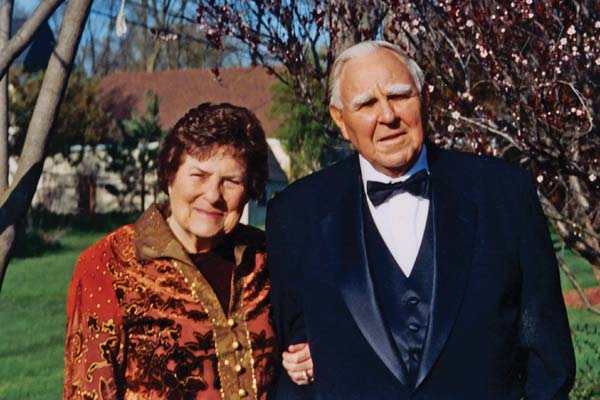
George and Doris Mosher were instrumental in establishing OCC
“We [Board members] were given the task of establishing a major community college but had no real guidelines,” George said decades later. A trademark attorney, he became known as the “Father of OCC” for his role in shaping the college. Doris led the drive to place funding for establishing OCC on the ballot. “One thing we all agreed on was our vision for our new college: it would be the best community college in the nation.”
Sixty years, 100,000 degrees and certificates, and more than 1 million enrolled students later, OCC has certainly lived up to those ideals.
“OCC’s founding principles have evolved, but they remain essential to our mission,” says OCC Chancellor Peter Provenzano. “We empower our students by providing the education and training that enables them to increase their economic mobility and enrich their personal growth.”
OCC Professor Emeritus of History Dennis Fiems, a charter faculty member, recalls some of the factors behind student enrollment during OCC’s early years.
“About 70 percent of the students were male—many were hoping to avoid the draft,” says Fiems, who retired in 2007. “Like today’s students, they also wanted an inexpensive education close to home, with training opportunities beyond high school, and a chance to transfer to a four-year school.”
OCC has always been on the cutting edge of educational technology. In its early years, the college offered an Audio Tutorial Approach, which supplemented textbooks with pre-recorded tapes, visual displays, and other programmed materials. The idea was to replace traditional teacher-oriented instruction with self-guided materials.
While progressive, that method had major shortcomings.
“Creating a multimedia approach for 100 different classes was simply“ beyond the resources of the college and the technical capabilities of many faculty members,” Fiems says. OCC had mostly reverted to traditional instruction by the late 1960s. But those early setbacks didn’t make the college shy away from technology.
“In 1995, we were among the first colleges to offer computer labs for writing instruction,” says OCC Provost for Academic Affairs Jennifer Berne. “We’ve always tried to capitalize on the potential of technology to support teaching and learning. For example, we have faculty doing very sophisticated work with virtual reality.” Embracing technology also includes virtual learning. This year, OCC received national recognition from Newsweek for the breadth and quality of its online offerings (see “Did You Know,”).
“About 5% of our classes were online pre-pandemic,” Berne says. “Now, we’re at about 50 percent. That growth has enabled us to increase our course offerings and meet student needs. Now it’s easier for students to fit classes in with their work schedules while raising families.”
Chancellor Provenzano says OCC will continue to embrace technology, break down educational barriers, and provide whatever services students need to be successful.
“We have major capital projects and improvements underway, such as a new state-of-the-art Health Sciences Building on the Orchard Ridge Campus,” he says. “We’re also going to be repurposing the Southfield Campus, expanding the Emergency Services Training program, and much more over the next 10 years.
“The future is bright for OCC. We’re woven into the fabric of the community as Oakland County’s workforce solution. If you like the first 60 years, wait ‘til you see the next 60.”
OCC's Future-PlanSomething Big Is Cooking in Royal Oak
OCC to open new Culinary Studies Institute building this fall
Royal Oak’s vibrant restaurant scene will soon include a new culinary hot spot.

The new Culinary Studies Institute building will be an academic and culinary center of excellence when it opens this fall in downtown Royal Oak.
This fall, Oakland Community College’s award-winning Culinary Arts program will relocate from the Orchard Ridge Campus in Farmington Hills to a new, state-of-the-art building on the Royal Oak Campus.
The three-story 78,400-sqaure-foot Culinary Studies Institute building will house high-end kitchens and instructional spaces, as well as a 200-seat full-service restaurant and banquet center. The community will enjoy a fabulous view of downtown Royal Oak with exquisite meals prepared and served by Culinary Arts students.
“The new facility will be something very special for our students and a shining star for the community,” says Culinary Faculty Chef and department chair Doug Ganhs, CEC. “We’re thrilled to bring this project to fruition and contribute to Royal Oak’s growth.”
Students can pursue a degree in Culinary Arts, a certificate in Baking and Pastry Arts or a Hospitality Management Essentials certificate. The program will introduce a Culinary Foundations certificate this fall.
The program emphasizes foundational cooking techniques across a spectrum of styles.
“Sautéing, grilling and braising are the fundamentals,” says Chef Doug, who received his degree at the Culinary Institute of America in Hyde Park, New York. “The base cuisine is French, with exposure to others like modern and regional American, Italian, and Asian.”
Program graduates can pursue a careeras a chef, or follow other paths to be-come a dietitian, product researcher and developer, catering manager, and more.
“Graduates have the knowledge to pursue many different options within the culinary and hospitality industries,” Chef Doug says.

Interior of New Culinary Building
The new kitchens and instructional facilities will prepare students for exceptional careers, says Dawnmarie Chmiel-Yelcho, MS, CHE, Executive Director of the Culinary Arts program.
“We’ll have five teaching kitchens, two demonstration kitchens, three classrooms that can be opened into one large room, and a ‘flex area’ where students can study and work on group projects,” she says. “We offer innovative culinary instruction within kitchens that match what students will experience in modern restaurants.”
Other building features include a hospitality suite, a full bar seating 20, a first-floor café seating 24, and a retail space with breakfast pastries and lunch fare. And true to OCC’s mission of serving and advancing the community, the public can participate in Community Enrichment cooking classes.
“Some popular classes are cooking pasta and sushi, braising meats, and making a full Italian menu,” Chmiel-Yelcho says. “We even offer a class that teaches kids starting at age 5 how to make many different items including hot and cold meals as well as pastry items. We can’t wait to welcome the public and get them involved.”
OCC's Culinary ProgramCulinary Studies Institute - Open House
Join us as we dedicate the Culinary Studies Institute building and open its doors to the public. Explore the new spaces, enjoy strolling appetizers, and view cooking demonstrations.
October 17 | 4–7 p.m.
Royal Oak Campus
oaklandcc.edu/calendar
Straight from the Chef
 This simple yet savory dish, prepared by OCC Culinary Arts Instructor Chef Doug Ganhs,
CEC, will surely be the hit of your next summer barbecue. For cooking instructions
and a video of Chef Doug preparing this dish, visit Grilling
This simple yet savory dish, prepared by OCC Culinary Arts Instructor Chef Doug Ganhs,
CEC, will surely be the hit of your next summer barbecue. For cooking instructions
and a video of Chef Doug preparing this dish, visit Grilling
Grilled Shrimp with Grilled Pineapple Salsa
Ingredients
- 12 shrimp, large
- ¼ cup olive oil
- 1 tsp salt
- ½ tsp black pepper
- ¼ tsp coriander
- ¼ tsp paprika
- ¼ tsp garlic powder
- 2 cups grilled pineapple, diced
- ¾ cup red bell pepper,
diced - ¼ cup red onion, diced
- 1 tbsp jalapeno, minced
- 1 tbsp rice vinegar
- 2 tbsp vegetable oil
- 1 tbsp chopped cilantro
- 1 tsp sugar
- Salt and pepper to taste

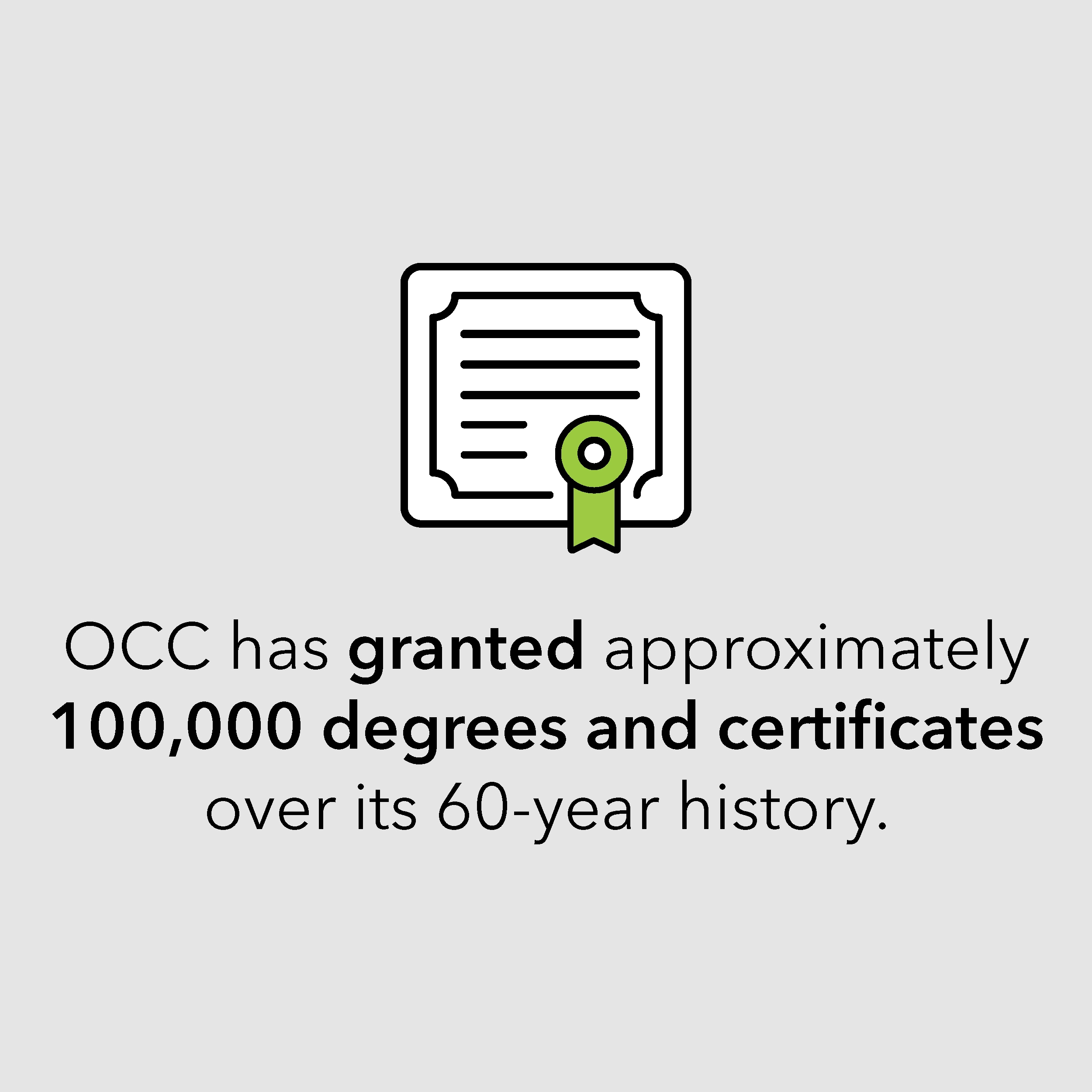
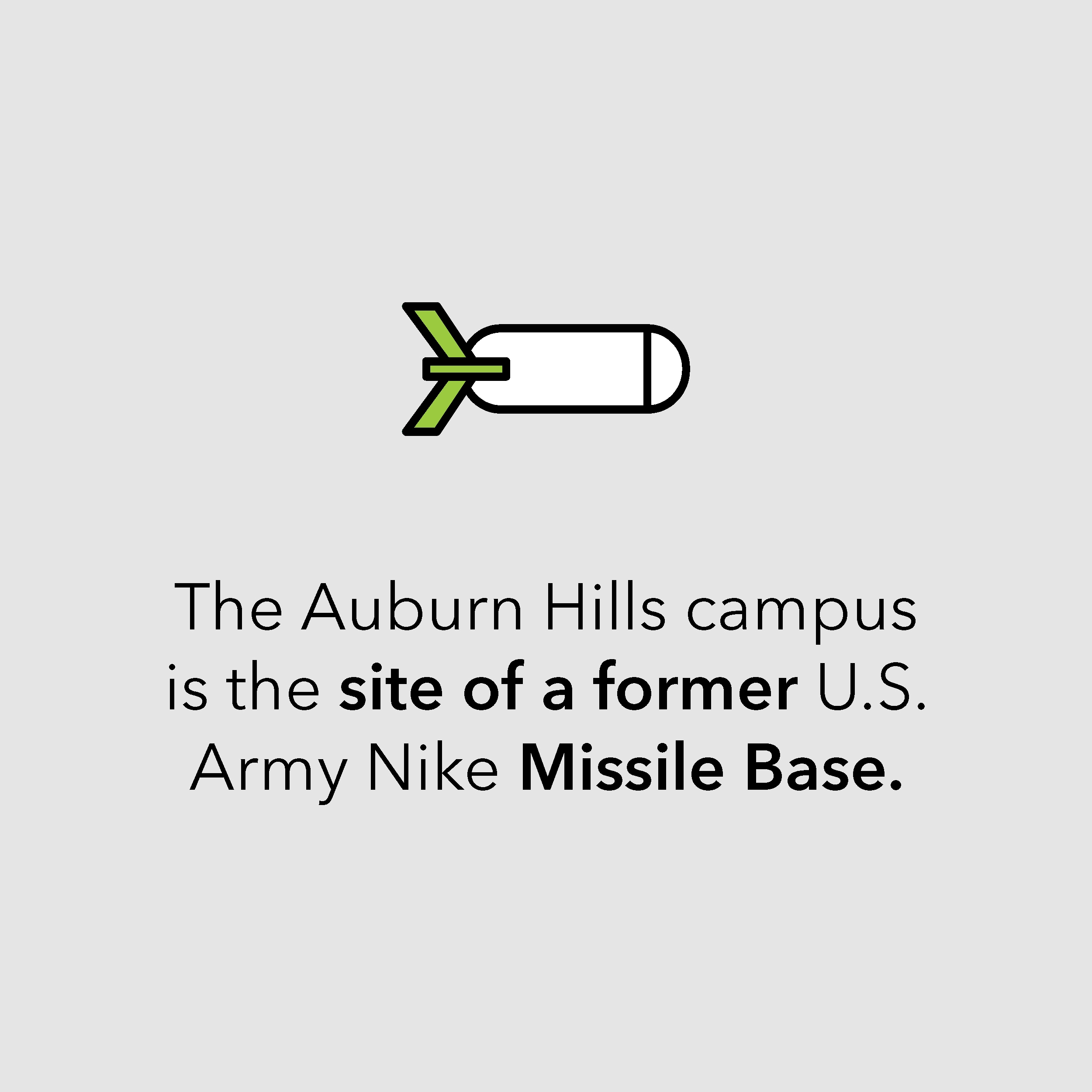
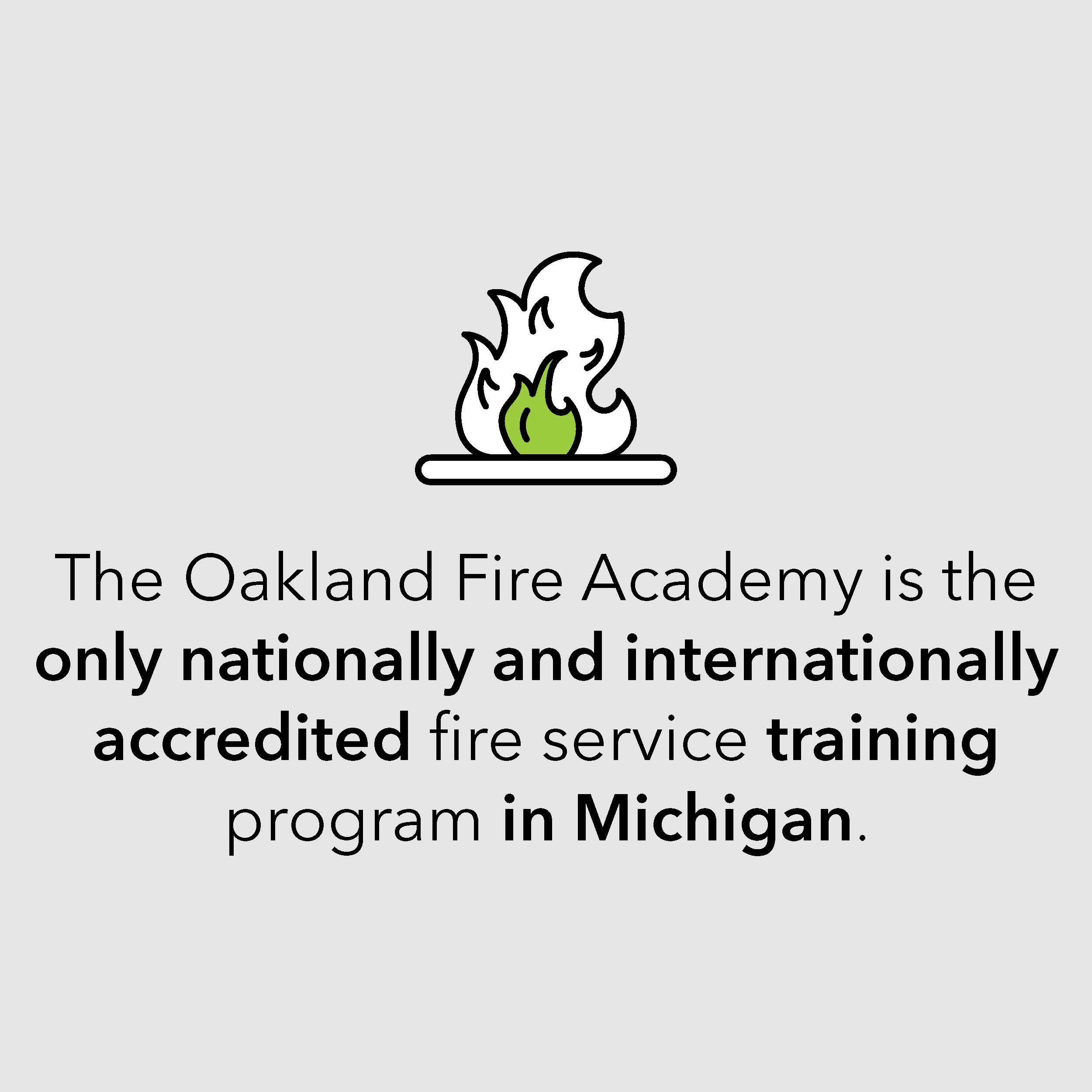
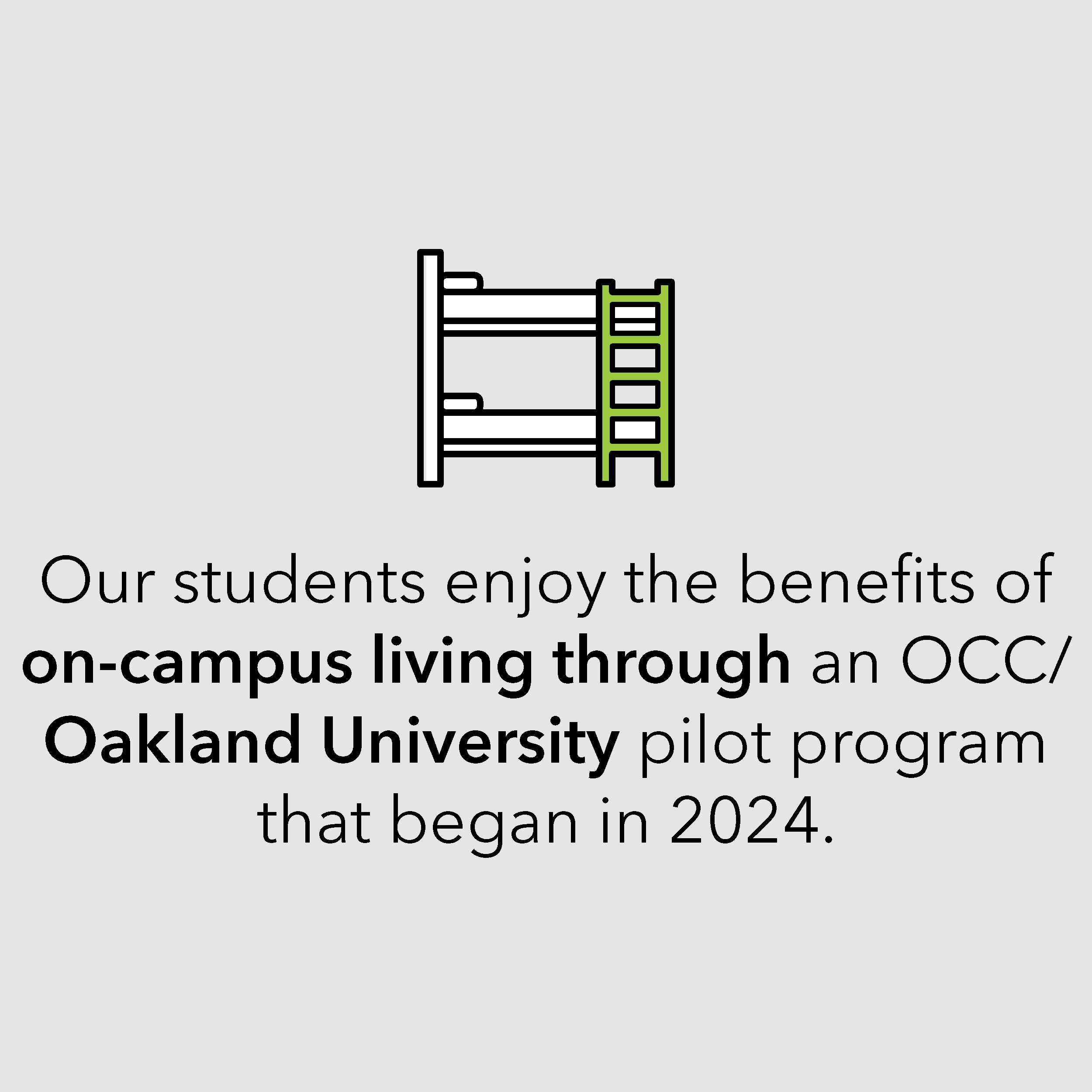

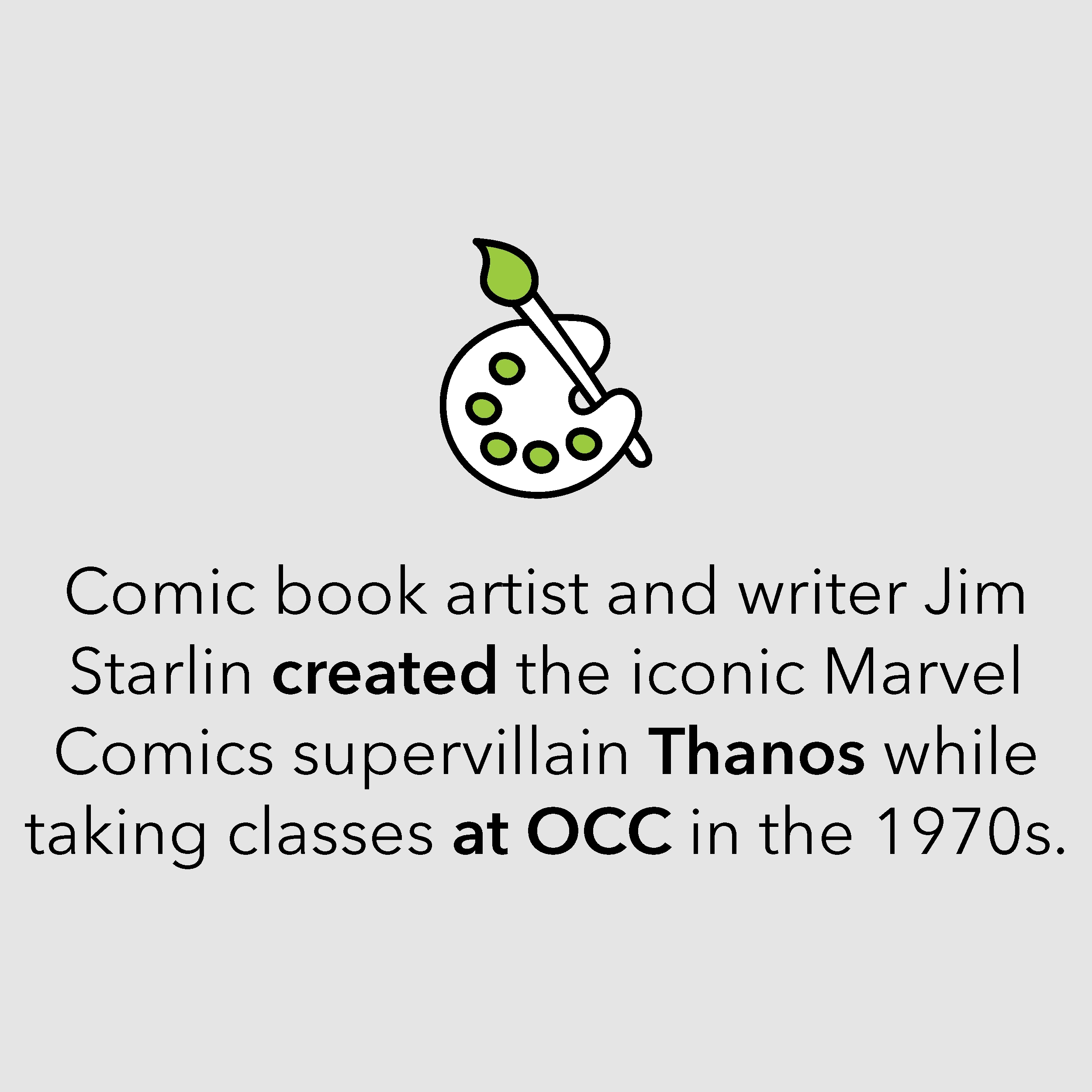
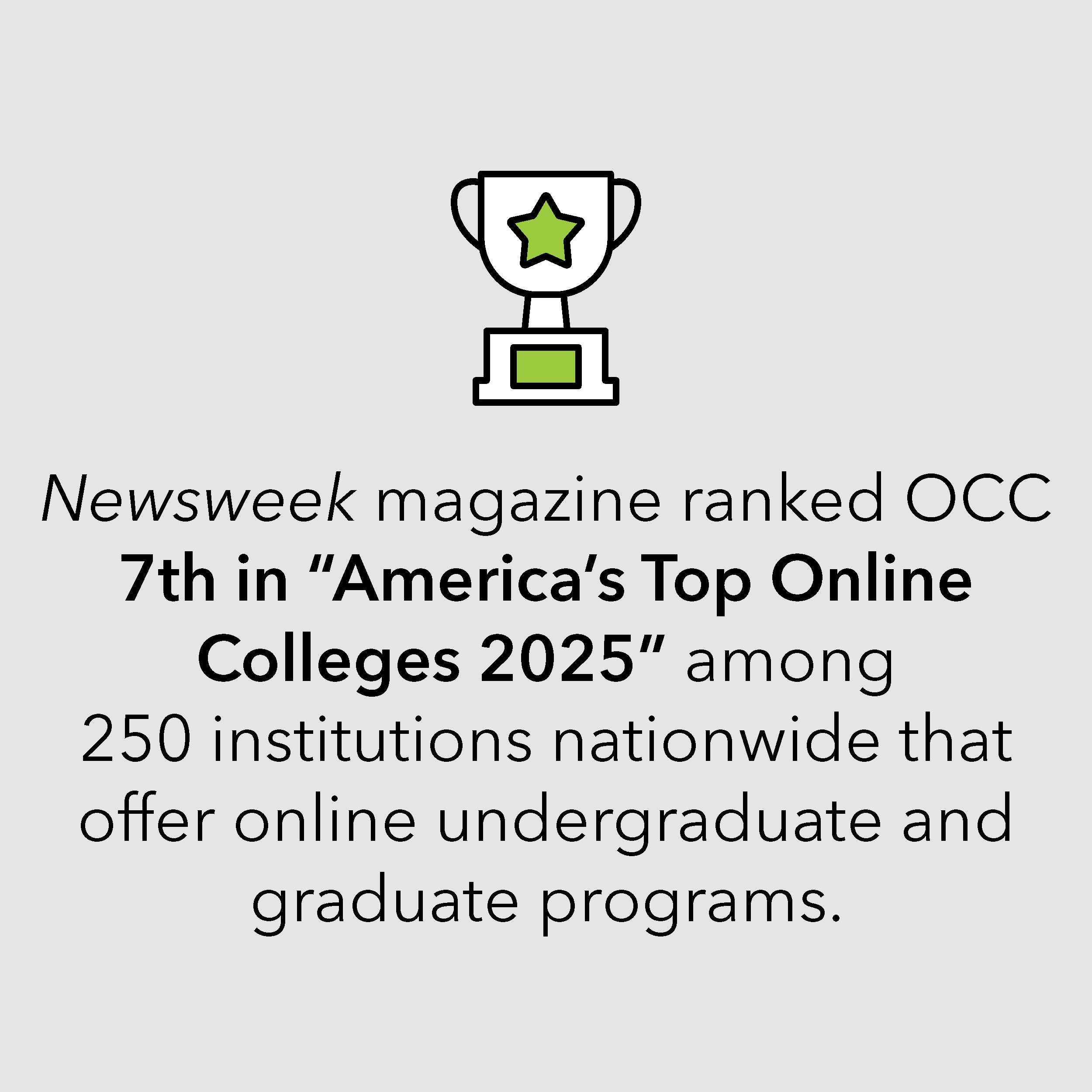
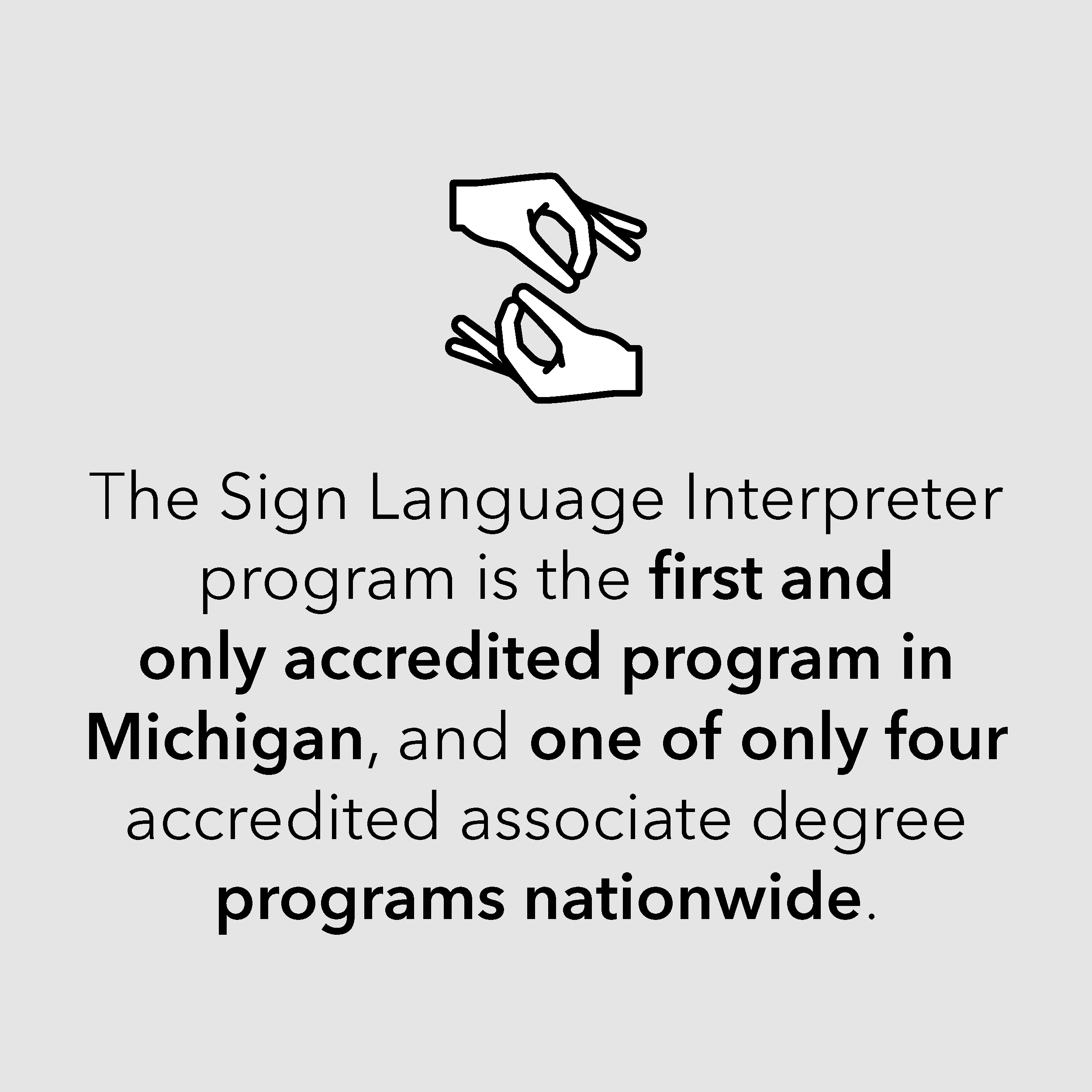
Graduate from College Early
High schoolers earn free college credits through OCC’s Dual Enrollment program
For students looking to earn college-level credits before graduating high school, Oakland Community College offers a golden opportunity.
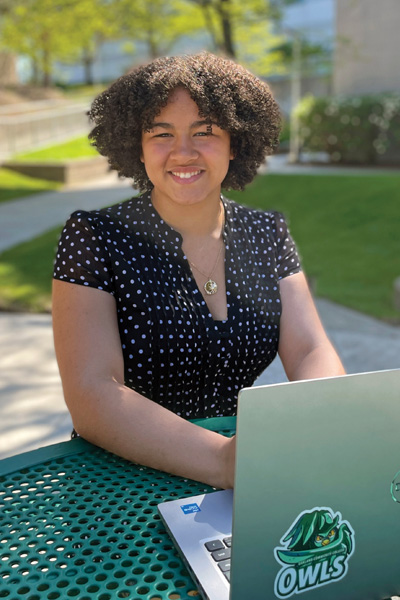
High school junior Imani Swain (above) from Detroit took a College Success Course with OCC last winter.
Through OCC’s Dual Enrollment program, high school students earn credits to apply toward a college degree or certificate. The student can also transfer those credits to a four-year university. Classes can be in-person or online, and they’re available in popular subjects like art, economics, psychology, science, and more.
“The program enables academically motivated high school students to earn college credits early,” says Bianca Bryant, OCC Associate Academic Dean of Dual Enrollment and K-12 Partnerships. “Depending on the number of credits earned, a student can save anywhere from $4,000 to $10,000 per year. Tuition at a four-year institution can range from $2,000 to $4,000 per class—about $616 per credit hour or more. At OCC, it’s approximately $115 per credit for in-district students.”
Best of all, with high school sponsorship and successful completion of the OCC course, the program is tuition-free for most students, with costs covered by the school district.
“As long as the student has completed the 8th grade, he or she is eligible for dual enrollment,” Bryant says. “Some high schools may have their own requirements. If that student has high school sponsorship and passes his or her OCC class, there is no cost.”
In addition to exploring their academic interests and getting a head start on their college degree, students also receive assistance from a dual enrollment navigator and other supportive services. High schoolers can also participate in OCC student clubs and campus events.
“We have a lot of resources to help dual enrollment students make a smooth transition to college,” Bryant says. “And studies show that dual enrollment students have higher levels of academic success than those who don’t participate.”
Imani Swain, a junior at University Prep Art & Design High School in Detroit, took a College Success Course offered online by OCC during the Winter 2025 semester. An aspiring animator, Imani says the course helped her prepare for the challenges of college-level curricula.
“I learned strategies for successfully completing college assignments,” Imani says. “The class covered everything from analyzing texts and performing research to writing papers and meeting with professors. I got insight on how college academics works, which I believe will help me get off to a good start.”
Highschool-Dual Enrollment ProgramOut & About
OCC is where you are - in the community

Farmington Farmers Market
Join us at the 32nd annual Farmers Market in downtown Farmington on Saturdays from 9 a.m. - 2 p.m. Say hello to OCC and learn more about high school student enrollment, skilled trades and community education. Mark your calendar as Chef Doug Ganhs returns for pumpkin carving demos on Oct. 25.
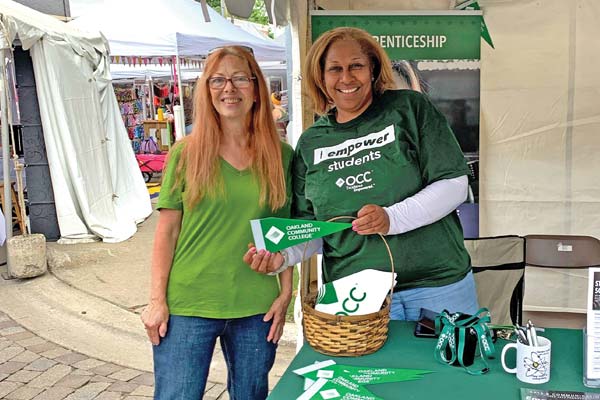
Milford Memories Summer Festival
Look for OCC at the Milford Memories Summer Festival August 8-10 in downtown Milford. Learn more about free tuition opportunities, academic programs and community education offerings.

Arts, Beats & Eats
OCC is proud to once again be a sponsor of Arts, Beats & Eats on Labor Day weekend in downtown Royal Oak. Watch for a special twist this year with the highly anticipated opening of our Culinary Arts building.
OCC's Timeline
1970s
Major expansion of facilities and student support. The student-led Association of Black Students is formed in 1969. The Womencenter opens, offering educational and supportive programs for women. Growing enrollment demand spurs the College to lease properties in Royal Oak and Oak Park.
1980s
Increased commitment to vocational education and training. Michigan’s first “earth-integrated” campus opens in Southfield. The soil roof—covered with living ground cover plants and cement walls—reduces heating and cooling costs.
1981
OCC students reconstruct bones of a 10,000-year-old mastodon.
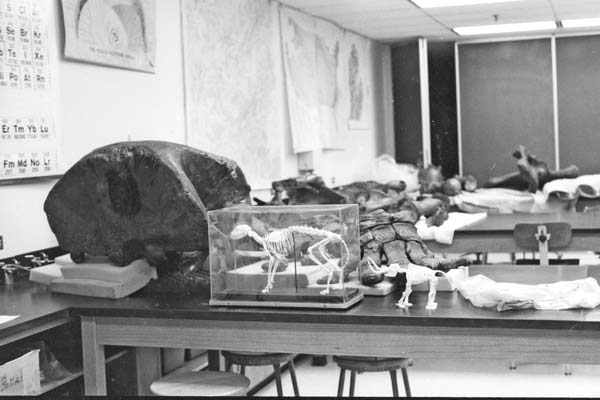
1982
Royal Oak campus opens.
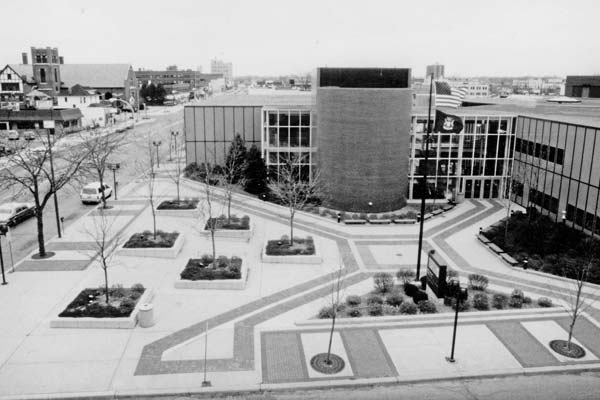
1990s
OCC becomes Michigan’s largest community college. Community College Weekly ranks OCC among the nation’s top 100 community colleges in several categories.
1999
State of Michigan awards $5 million grant for Michigan Technical Education Center (M-TEC).
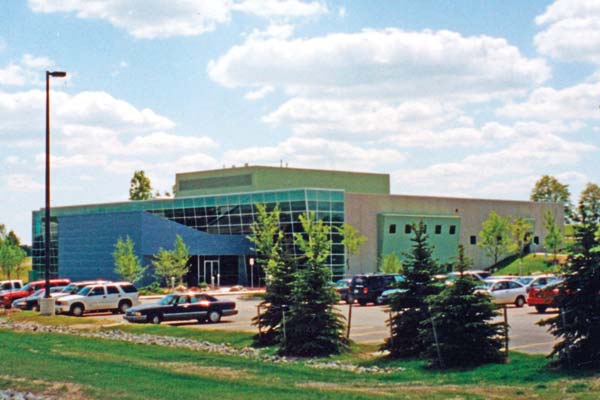
2000s
OCC partners to create Oakland Early College and other innovative programs to support student success. George Mosher and his wife Doris establish the George & Doris Mosher Endowed Scholarship, the OCC Foundation’s largest, to help students in financial need.
2004
A national model for emergency services and anti-terrorist training, Combined Regional Emergency Services Training (CREST) facility opens on the Auburn Hills Campus.
2018
New Science and Computer Science building opens on Auburn Hills Campus.
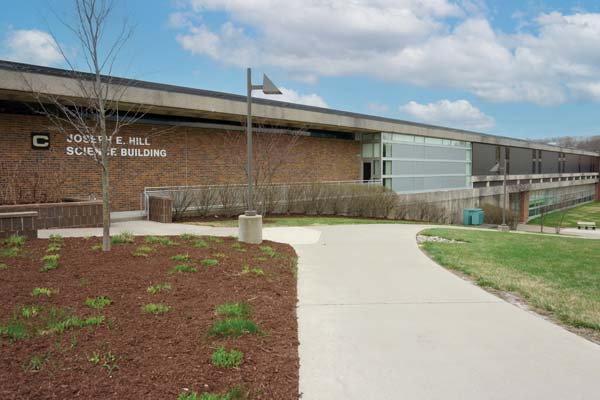
2020
With the onset of a global pandemic OCC pivots to offering over 50% of classes online. State funds enable free community college scholarships.

2024
OCC Owls announce new mascot, Talon, conceptualized and designed by OCC students.

2025
Men’s basketball team plays in the National Junior College Athletic Association (NJCAA) Division II National Tournament.
